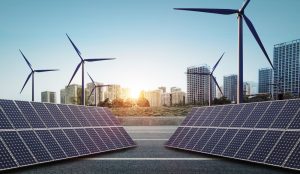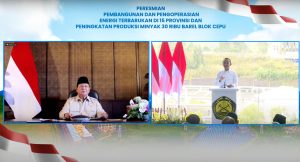Jakarta – The government is increasingly encouraging the smelter industry in Indonesia to abandon dependence on coal-fired steam power plants (PLTU) and switch to new renewable energy (NRE). One proposed energy source is solar power, which is considered more environmentally friendly and in line with global commitments to reduce carbon emissions.
Minister of Energy and Mineral Resources (MEMR) Bahlil Lahadalia explained that many smelter companies have shown greater concern for the environment in their investment decisions.
“Now businesses are not only thinking about profits but also environmental impacts. Therefore, the government will encourage these smelters to switch to more environmentally friendly power plants,” Bahlil said at the Kumparan Green Conference streaming event on Wednesday, September 25.
According to Bahlil, this step is part of the government’s long-term strategy to reduce carbon emissions in the industrial sector, especially in the downstream of natural resources such as nickel. One example he mentioned was the Wedabai area, where a nickel downstream industry is being developed.
“In Wedabai, they are building a downstream industry with a power generation capacity of around 8,000 to 10,000 megawatts, and it will all be converted to renewable energy,” he explained.
Gradual conversion to renewable energy
The government targets energy conversion in the smelter industry in stages. Bahlil mentioned that some companies have committed to starting to switch to renewable energy by 2025, with a significant target by 2030.
“We have discussed with them, and 2025, they will start using solar panels. By 2030, at least 60-70 per cent of them are expected to use renewable energy,” he added.
Solar power will be one of the main energy sources proposed, especially in large ex-mining areas. In addition, the government will be more selective in granting operating licenses to smelters that only produce nickel pig iron (NPI), with the condition that they use renewable energy or at least gas.
Bahlil acknowledged that the shift to renewable energy, such as solar panels, will increase initial investment costs for businesses. However, he emphasized that clean energy products will have a higher selling point in the global market. “Indeed, the CapEx (investment cost) will be more expensive, but products produced from renewable energy also have a higher price than products that still use coal. So, from an economic perspective, this should not be a problem,” Bahlil said.
With this policy, the government hopes to accelerate the energy transition in the smelter industry, one of the main sectors of the Indonesian economy. In addition to supporting the growth of the downstream industry, this step is also part of Indonesia’s commitment to achieving a greener and more sustainable energy mix target. (Hartatik)













